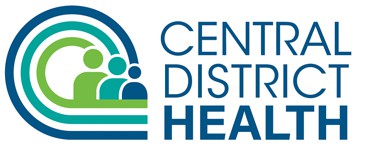4 décembre 2024
Le Central District Health (CDH) a confirmé qu'une exposition à la tuberculose a pu avoir lieu à la Meridian High School à Meridian entre août et novembre 2024. Il n'y a pas de risque permanent et les gens peuvent se rendre à l'école et aux événements scolaires comme d'habitude.
Le CDH collabore avec la Meridian High School et le West Ada School District pour mener une enquête sur les contacts afin de déterminer si une transmission de la tuberculose a pu avoir lieu à l'école. Dans les prochains jours, des lettres seront envoyées à toutes les personnes susceptibles d'avoir été exposées et devant subir un test de dépistage de la tuberculose.
Les prestataires doivent être prêts à recevoir des questions ou des demandes de dépistage de la tuberculose de la part de personnes associées à l'école secondaire Meridian. Le CDH recommande que le dépistage de la tuberculose ne soit effectué que sur le personnel ou les élèves qui reçoivent une lettre indiquant qu'ils ont été potentiellement exposés.
Essais
Le dépistage de la tuberculose se fait par un test cutané à la tuberculine (TST, également appelé PPD) ou par un test sanguin (IGRA, tel que le T-SPOT). À noter :
- Si une personne a déjà eu une IDR ou un IGRA positif, elle ne doit pas être testée à nouveau car le résultat sera probablement toujours positif.
- Si une personne a reçu le vaccin BCG, un test sanguin est recommandé, car le TST peut donner un résultat faussement positif.
- Pour une personne exposée à une personne atteinte de tuberculose active, l'IDR est positive à partir d'une induration de 5 mm.
Ces tests ne permettent pas à eux seuls de diagnostiquer une tuberculose active. Les personnes dont le test de dépistage de la tuberculose est positif doivent faire l'objet d'un examen des symptômes et d'une radiographie des poumons. Les symptômes courants de la tuberculose active sont une toux chronique, de la fièvre, des sueurs nocturnes et une perte de poids inexpliquée durant trois semaines ou plus. Si vous craignez qu'un patient soit atteint de tuberculose active, appelez le programme d'épidémiologie au 208-327-8625.
Le CDH propose également des tests de dépistage aux personnes identifiées dans le cadre de cette enquête de contact si elles n'ont pas d'obstacles à l'accès aux soins médicaux.
Pour toute question ou information complémentaire, veuillez consulter https://www.cdc.gov/tb/testing/?CDC_AAref_Val=https://www.cdc.gov/tb/topic/testing/default.htm ou appeler le programme d'épidémiologie au 208-327-8625.

